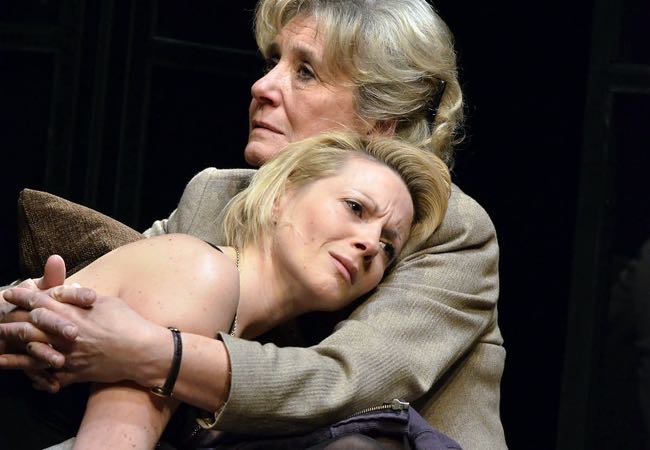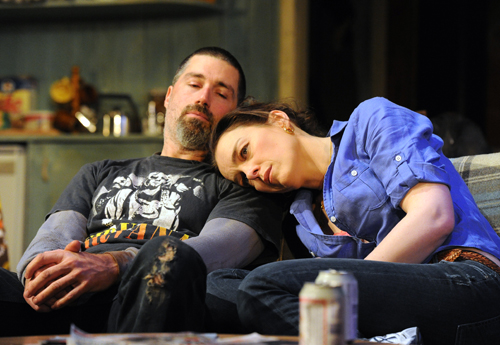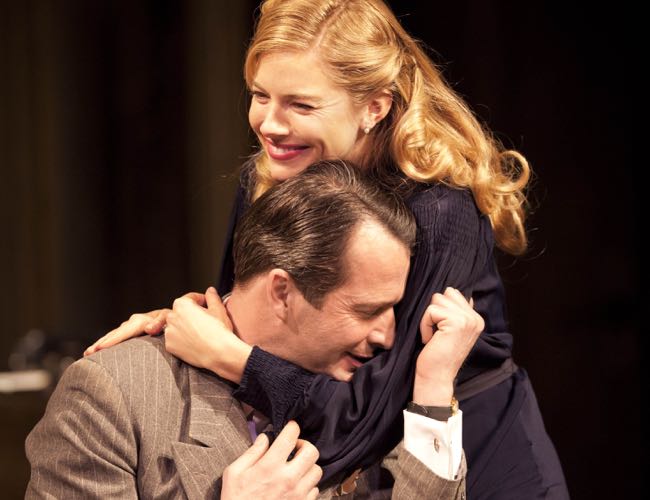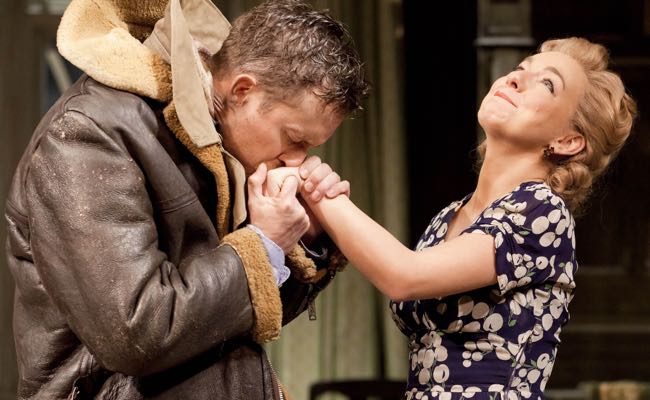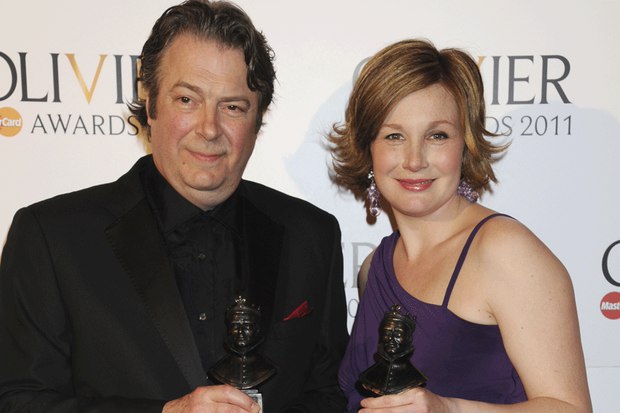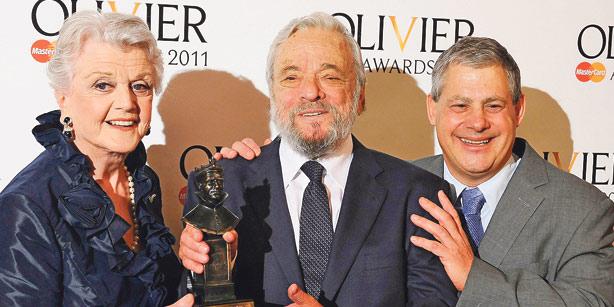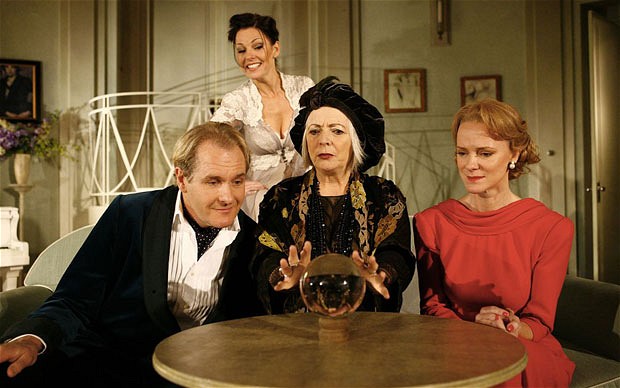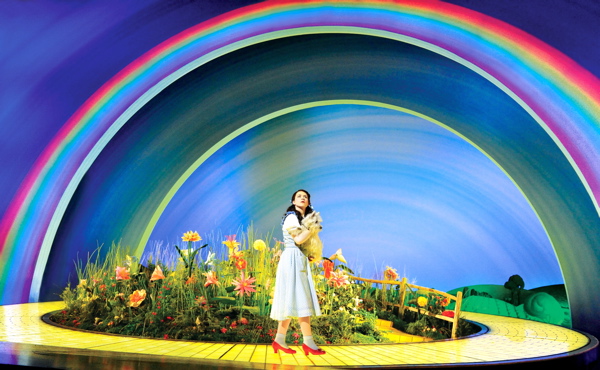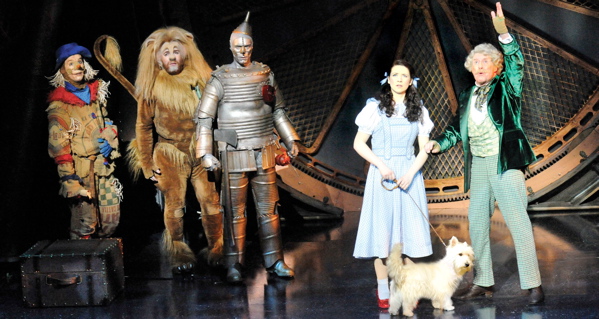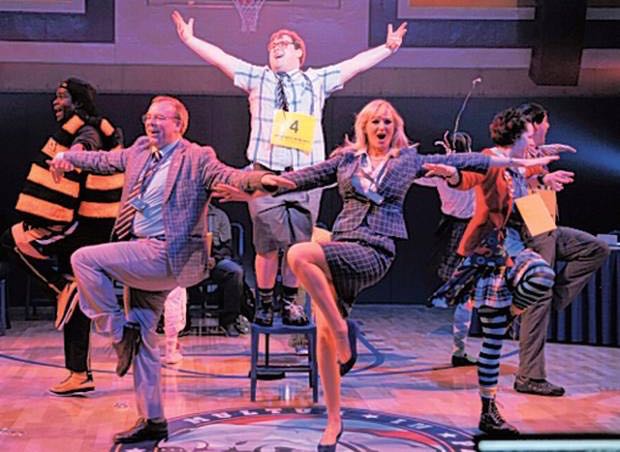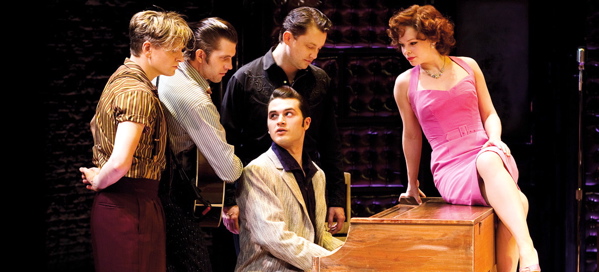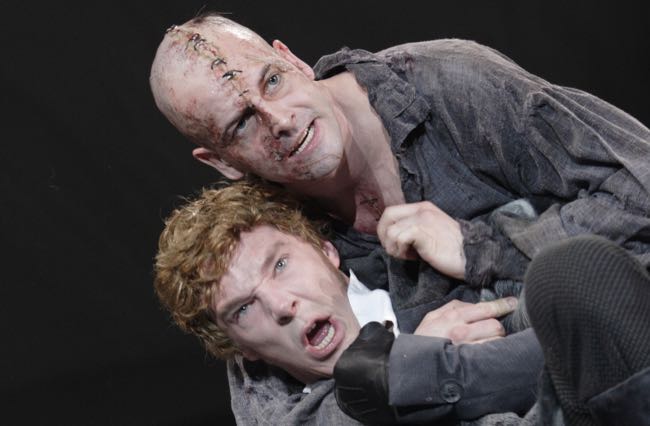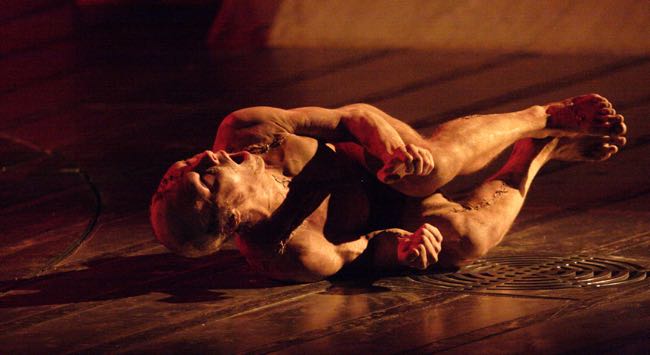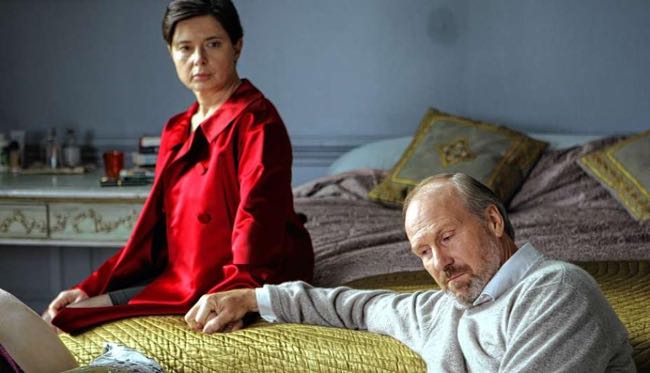By Ray Bennett
LONDON – An engrossing story of middle-class drug addiction with a committed performance by Lisa Dillon, David Eldridge’s new play The Knot of the Heart suffers from being too middle class for its own good.
Dillon plays Lucy, a children’s television presenter who has been fired for smoking crack cocaine, and she’s still very annoyed about it. Now she’s in the garden of her mother’s posh home in North London where Mummy, as she calls her, holds the tin foil while she smokes some more.
Mummy (Margot Leicester, pictured with Dillon) is an alcoholic widow who has spoiled Lucy rotten since her father died and has been equally indifferent to Lucy’s older sister Angela (Abigail Cruttenden), who has become a tightly wound lawyer.
In a sequence of well-staged scenes on a revolving set that changes swiftly from suburban garden to hospital ward to crisis clinic and back again, Lucy descends from casual indulgence to all out addiction. The consequences pile up as she becomes broke, trades sex for drugs and suffers violence and rape.
Dillon makes no play for the audience’s sympathy as Lucy’s life worsens. She remains a spoiled brat who is outraged that simply doing what “all my friends do” has changed her life so unfairly.
Of course, it helps that Mummy has a nice house and a large savings account that she’s happy to forfeit if it means her darling Lucy gets the warm cuddle that she finds in her first injection of heroin.
Eldridge paints a vivid portrait of how easy it is for those susceptible to temptation to succumb to addiction, and Dillon portrays Lucy’s increased desperation and slow awareness with a keen grasp of what a body goes through when gripped by sensation and torn by withdrawal.
The play follows Lucy as she travels through the passages of recovery and relapse, with Kieran Bew adept as various men she encounters, including a sympathetic nurse and a helpful shrink. Cruttenden’s shrewdly observed Angela mellows during the course of the story, and she reveals the family secret that at least helps her sister see that she inherited most of her predilections.
Leicester is all warm bosom and open arms to Lucy even when her daughter’s behavior is reprehensible, although she shows that Mummy can wield a sharp stick when she’s cornered.
It’s an unblinking view of how too much love and indulgence can be as bad as none at all, and director Michael Attenborough and his players draw as much from it as Eldridge is willing to give.
The problem is that the characters are so middle class in the English sense that they don’t appear fully rounded. When Angela wishes to deride her own kind, she has no cutting edge: “I think the working class get such a bad press,” she says. “I think the middle class are so much crasser.”
The language of the mother also appears too articulate and well mannered. “I can’t see for the life of me what I’ve done wrong as a mother. How can a mother’s love be too much?” she asks. Surely, if she knows enough to ask the question, she should know the answer.
The upshot is that despite Dillon’s spare delivery in the central role, Lucy’s plight is very interesting but not exactly touching.
Venue: Almeida Theatre, runs through April 30; Cast: Lisa Dillon, Margot Leicester, Abigail Cruttenden, Kieran Bew, Sophia Stanton; Playwright: David Eldridge; Director: Michael Attenborough; Set designer: Peter McKintosh; Lighting designer: Tim Mitchell; Music and sound designer: Dan Jones.
This review appeared in The Hollywood Reporter.

